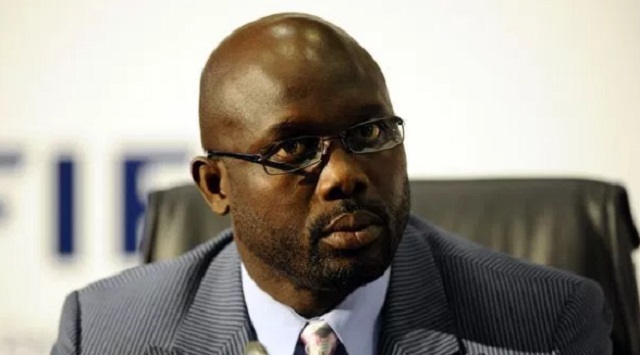
Gbah, Liberia | AFP | Morris Kidir gestures at a wide expanse of dark-green land he says was earmarked for a school or clinic in his northern Liberian village, now covered in young oil palm trees.
In October last year, he recalls, workers from Malaysian conglomerate Sime Darby arrived at the plot and began filling in the only gap left in a forest of palms that stretch as far as the eye can see.
Kidir, an elder in the village of Gbah, Bomi county, is on the front line of a national dispute over land ownership dating back to the mid-19th century that could now define the presidency of George Weah, the ex-football star sworn in for a six-year term last month.
“We beg you people to leave this land for us, for development,” the frail villager recounts writing in a letter to the firm, one of four oil palm giants operating in Liberia.
This West African country is one of the world’s poorest, ranking 177th out of the 188 countries in the UN’s Human Development Index. But its rubber, iron ore and more recently palm oil represent rare examples of foreign investment — and sources of tax revenue.
Rural residents say they are not aware of what the government and multinational firms have agreed when signing decades-long contracts, and have little recourse when diggers appear in their backyards.
Given that the 1989-2003 civil wars were in part driven by disputes over land and resources, observers are worried what the future holds as a UN peacekeeping mission prepares to leave Liberia in March.
The new government is expected to reconsider a four-year old Land Rights bill that campaigners say was considerably watered down by the House of Representatives in 2017 before being blocked by the Senate.
– Weight of history –
Weah told the nation after being sworn in that citizens were owed “clarity on fundamental issues such as the land beneath their feet, freedom of speech and how national resources and responsibilities are going to be shared”.
Freed slaves from the United States founded Liberia in 1847 and introduced a formalised system of land titles, overturning the customary tradition of the indigenous population.
The so-called “Americo-Liberians” banned non-landed citizens from voting until 1951, and Weah is only the second indigenous Liberian ever elected president.
“A number of laws were developed declaring the vast majority of land as public land, owned by the state,” explained Stanley Toe, Executive Director of the Liberia Land Authority (LLA) — a situation that has largely prevailed until today.
As Gerald Yeakula, programme manager at the Center for Transparency and Accountability in Liberia (CENTAL), noted in an interview with AFP, “a lot of the customary (indigenous) people do not really know that these lands do not belong to them”.
– ‘No consent’ –
In Gbah and villages like it, palms creep right up to doors of homes — despite an agreement, Kidir said, to leave a buffer zone between the plantation and residential areas.
But he, like many, is hazy on what the government and firms with large concessions have agreed, leading to disputes.
“Almost all of these concessions have not been concluded with full, free and prior consent, despite some efforts by companies,” explained Lien De Brouckere, Deputy Africa Director for the Rights and Resources Initiative.
 The Independent Uganda: You get the Truth we Pay the Price
The Independent Uganda: You get the Truth we Pay the Price


